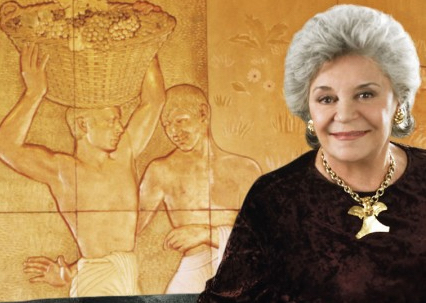Beyond the wine: John Salvi MW recounts a moving experience with Baroness Philippine de Rothschild, involving a book of fairy tales written for her by her father Baron Philippe de Rothschild, in which the two feature.
A number of years ago I was honoured to be invited to lunch at Château Mouton Rothschild by the Baroness Philippine de Rothschild, together with Clive Coates. For some reason she considered that her guests were important and served us both the 1961 and the 1945 Château Mouton Rothschild.
However, this tale is not to vaunt the fine wines I have drunk, but something that I consider much more important, extremely precious and deeply moving.
After being arrested in Algeria by the Vichy Government and released in 1941, Philippe, Philippine’s father, joined the Free French Forces in London. In 1944, the German Gestapo entered their Paris house and arrested his wife, Elisabeth, and deported her to Ravensbrück concentration camp, where her life ended. They did not take Philippine, who was 11 years old at the time, as it is said that the staff either hid her or had taken her away.
When she was just over five years old her father authored a book for her. It was a book of fairy stories in which both she and her father were involved. He called it, Aile D’Argent La Magique. During lunch we were talking about the war when Philippine suddenly got up, went out of the room for a few minutes and returned with a book. This was the book. “Take it and read it” she said, “it will interest you.” I was overwhelmed. When I got home and looked at it closely, I was even more amazed. The pages were uncut, and it was on laid paper, published by Gallimard and illustrated by Eliane Bonabel. A veritable treasure!
Underneath his original dedication, which he wrote in 1941, just after being released from prison and before going to London, he wrote:
Today, September 1945, under our celebrating skies and after a long separation, the same father and the same little girl finally reunited, mourn. She whose presence illuminates each page of happiness contained in this book did not return from the German concentration camps. Never again will we hear her reply when our little girl calls, “Maman.”

